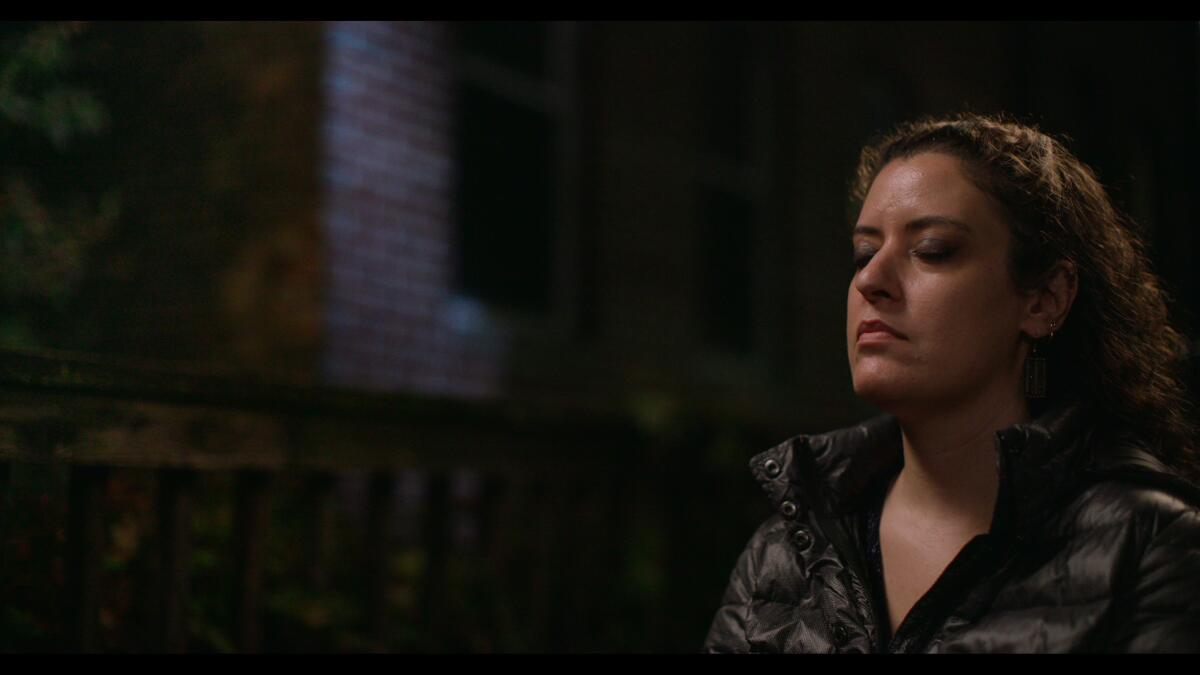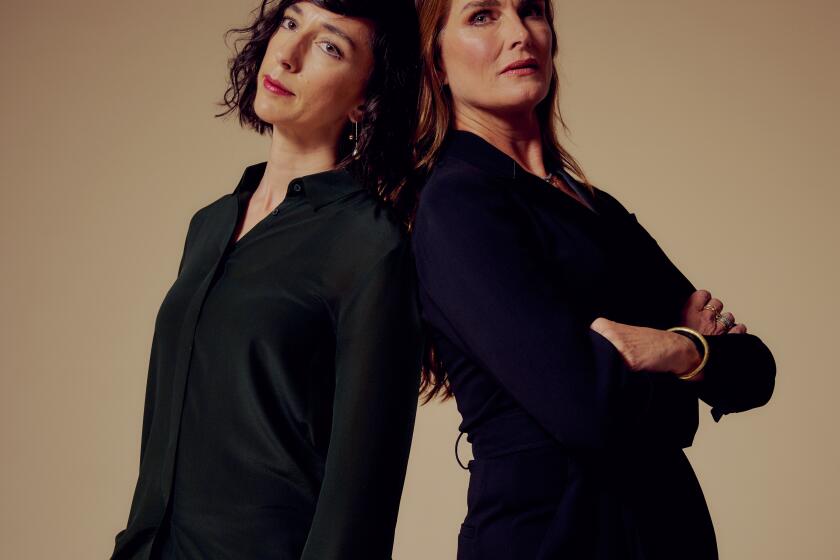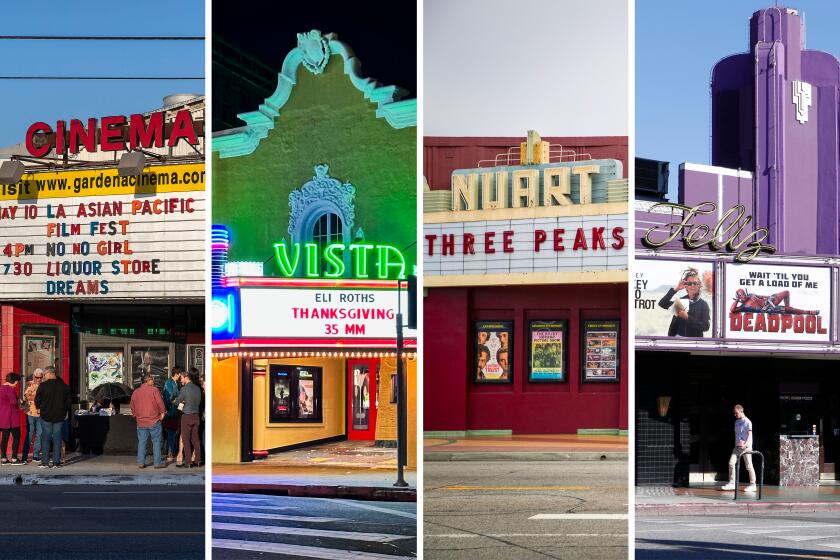Review: ‘Look Into My Eyes’ is a compassionate profile of psychics, not out to scam but connect

- Share via
As Lana Wilson’s documentary about psychics “Look Into My Eyes” opens, a gray New York sky hovers above a nondescript building. A modest yellow glow comes from one high-storied window. Inside, a woman begins telling someone off-camera about a girl’s tragic death, something she’s held onto tightly for 20 years. There’s a question she still needs answered. How is she?
Wilson returns to that exterior building shot at the end of the film, after we’ve witnessed several more interactions and gotten to know a handful of these psychics, many of whom carry around their own unresolved aches. But at the end, the image somehow feels different: That lit window against the big, hard, anxious city conveys a hopeful warmth. It looks comforting.
The documentary is an indictment of how our misogynist culture has historically sexualized, objectified and exploited women and young girls — and still does.
Coming to “Look Into My Eyes” as a skeptic is only natural, because you’re human. The world of clairvoyants is bizarre and suspicious, and we love docs that pull back the curtain. What’s also universal, however, in these years of global trauma, is the need to address what ails us, and it’s this perspective that informs Wilson’s approach — the same one that imbued grace to her previous documentaries “After Tiller,” about abortion doctors, and “The Departure,” about a turmoil-ridden monk.
Something diverting and affecting emerges from Wilson’s close, considerate and not unskeptical hang with a diverse handful of New York psychics plying their wares and living their lives. You end up believing — not in paranormal powers or some mystical gift, but in the modest building blocks of reaching out. These tucked-away transactions of faith and performance offer, in their own way, a kind of solace.
Wilson’s observational mode is respectful, the multi-camera set-up fixed on hushed, awkward-at-first exchanges as if capturing an important interview where subject and questioner have equal standing. The faces of the clients have nervous smiles as they ask a question or await one, or receive a declaration of a spiritual presence. The psychics, too, betray their own apprehension as things come to them. Will it spark an emotion, bring them nearer to the source of the pain? Or will it go wrong? It comes off as a first dance, where both parties want to avoid stepping on toes or actively leading, yet find a rhythm that matches the music and, most importantly, feels good.
The exchanges often seem like bids for being heard, where all that’s being sought is a kind, sensible word from the friendly face in front of you. An adoptee wants details about the Chinese birth parents who gave her up. (They were greedy; being adopted can be hard.) A tightly wound woman fears her defiant dog doesn’t like her. (He senses that worry; be calmer.) A young Black man fixates on having learned about his ancestor’s slave price. (Focus on defining your own freedom.)
We’ve mapped out 27 of the best movie theaters in L.A., from the TCL Chinese and the New Beverly to the Alamo Drafthouse and which AMC reigns in Burbank.
That assuaging goes both ways, though. The psychics’ own backstories of anguish and loneliness — unsurprisingly, they’re almost all former or still-striving actors — invariably tinge the kind of healing messages given: that a person is unique, that someone can’t change the past, that a lost loved one accepts them, that recognition is just around the corner. Some of the psychics’ lives seem, frankly, precarious, and by a certain point, we glean, quite movingly, that in these sessions, they’re soothing themselves as much as their clients.
In interviews, Wilson can be heard off-camera, gently probing: Is this essentially improv? Their replies aren’t defensive — the psychics rely on an affable confidence in not knowing exactly what is going on, but that something is. As one of them adds, “If it resonates, it doesn’t really matter.”
Human connections are gifts, imagination is powerful and empathy isn’t a trick. These are the things “Look Into My Eyes” patiently communicates to us from its watchful perch. What these freelance healers do may not be professional therapy. But the sensitive, intimate outlet shown in Wilson’s compassionate documentary — one of the year’s best — lets us put our mistrust aside to consider what can be deeply felt from a pretense accepted between willing, receptive souls.
'Look Into My Eyes'
Rating: R, for language
Running time: 1 hour, 44 minutes
Playing: In limited release Friday, Sept. 13
More to Read
Only good movies
Get the Indie Focus newsletter, Mark Olsen's weekly guide to the world of cinema.
You may occasionally receive promotional content from the Los Angeles Times.












